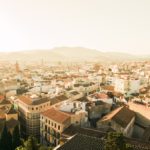
This summer time, an earlier heatwave sparked wildfires much sooner than normal, both in The country and Portugal. Greater than 60 people died in a single fire in central Portugal, ignited by dry lightning.
This is exactly what scientists say maqui berry farmers and residents can get from the warming planet. Already-fragile environments such as the Guadalquivir delta are where global warming might have probably the most deadly impact.
Scientists predict all southern The country, using its varied landscapes — arid Mediterranean terraces, partial deserts and delicate wetlands — will disappear to 1 big desert through the finish of the century, if current rates of green house gas emissions continue unchecked. Man made water shortages happen to be compounding individuals effects.
The Guadalquivir delta is Spain’s greatest grain-growing area. (It was once Valencia, the famous homeland of Spanish paella. But throughout the Spanish Civil War within the late 1930s, when Valencia fell to Republican forces, the military dictator Francisco Franco purchased that grain be grown around the Guadalquivir delta, which his Nationalist forces still controlled. Acreage of grain farms in the region has expanded since.)
It might seem strange to develop grain — which grows best submerged in water — in this hot, dry climate. While reporting around the delta in June, daytime temperatures hovered around 104F. Farm workers start their days 4 a.m., to be able to finish by noon, before it will get hot. It is a severe climate — and it is forecast to obtain worse.
But grain isn’t the greatest offender towards the atmosphere here, because grain maqui berry farmers draw water in the river, extractions that are controlled. The larger issue is berries. The Guadalquivir region supplies in regards to a third famous Europe’s bananas — and strawberry maqui berry farmers drill wells in to the aquifer.
"The issue using the aquifer is the fact that it is something you do not see, since it is an subterranean pool," states Felipe Fuentelsaz, who tests groundwater levels for that local branch around the globe Wildlife Fund.
80 percent from the region’s aquifer has dried out due to intensive agriculture and also the drilling of illegal wells, the WWF states. Some maqui berry farmers rent drilling rigs and haul them out into secluded forests in the center of the night time, or on vacation weekends, to drill wells that they do not have permits. The WWF estimates you will find a minimum of 10,000 illegal wells within the entire region, also it contends that local officials aren’t doing enough to prevent them.
 Resourse: http://npr.org/sections/parallels/2017/07/02/534746211/
Resourse: http://npr.org/sections/parallels/2017/07/02/534746211/







